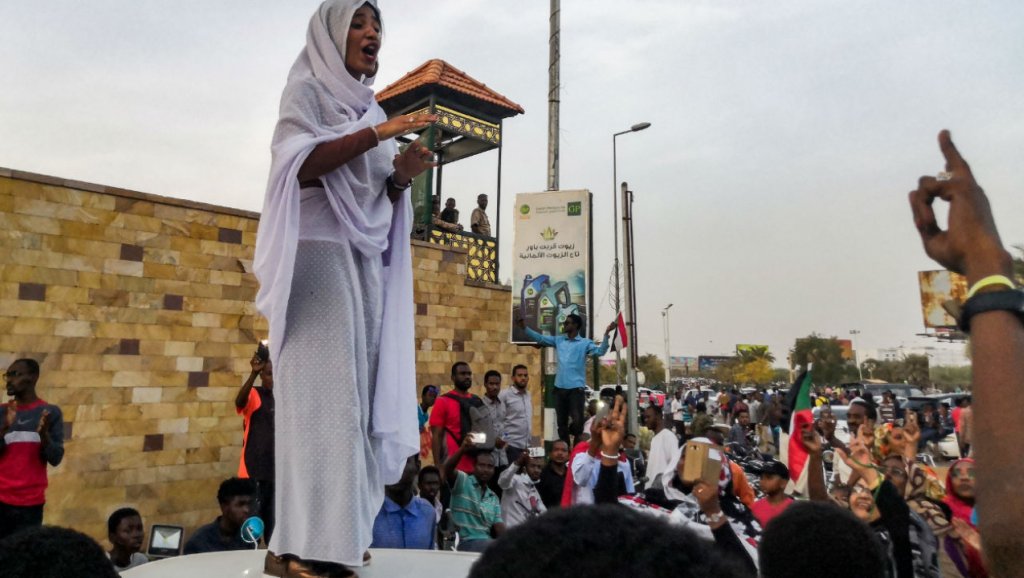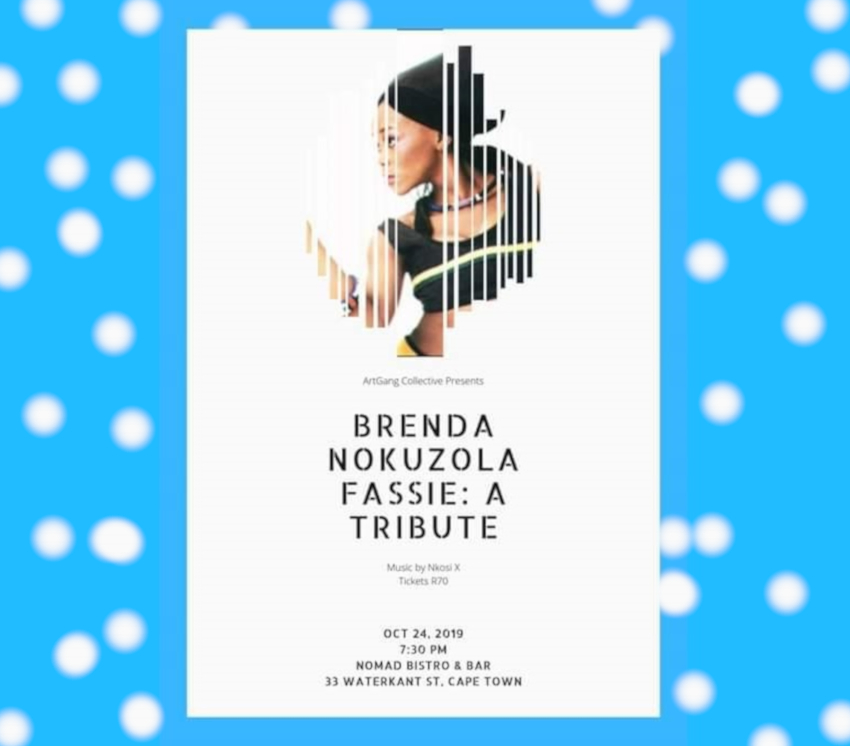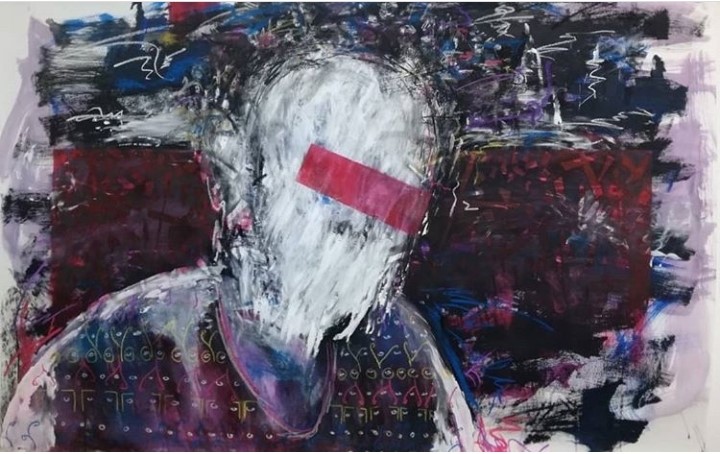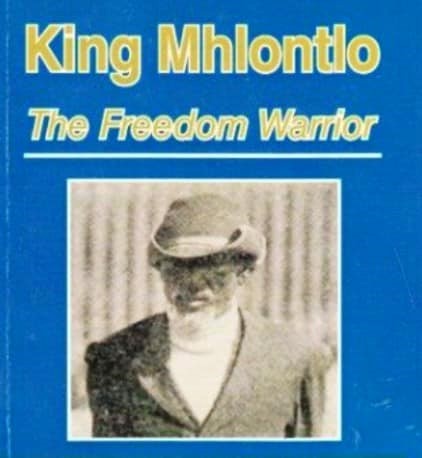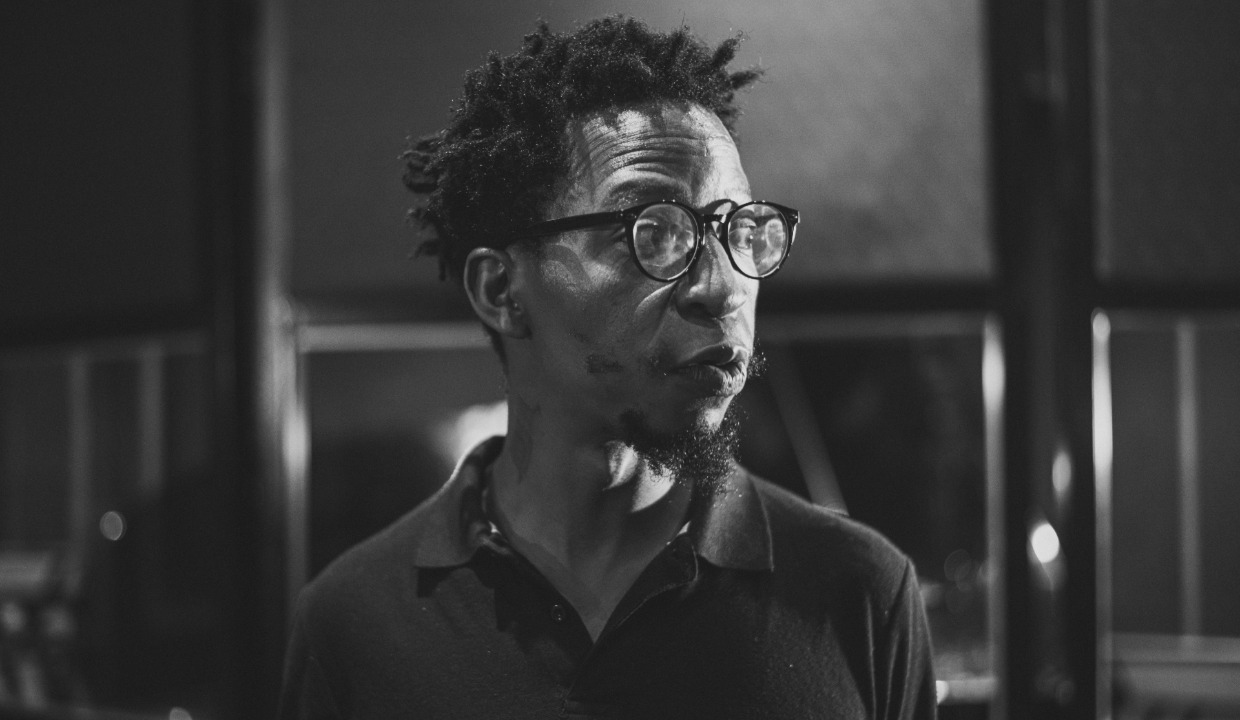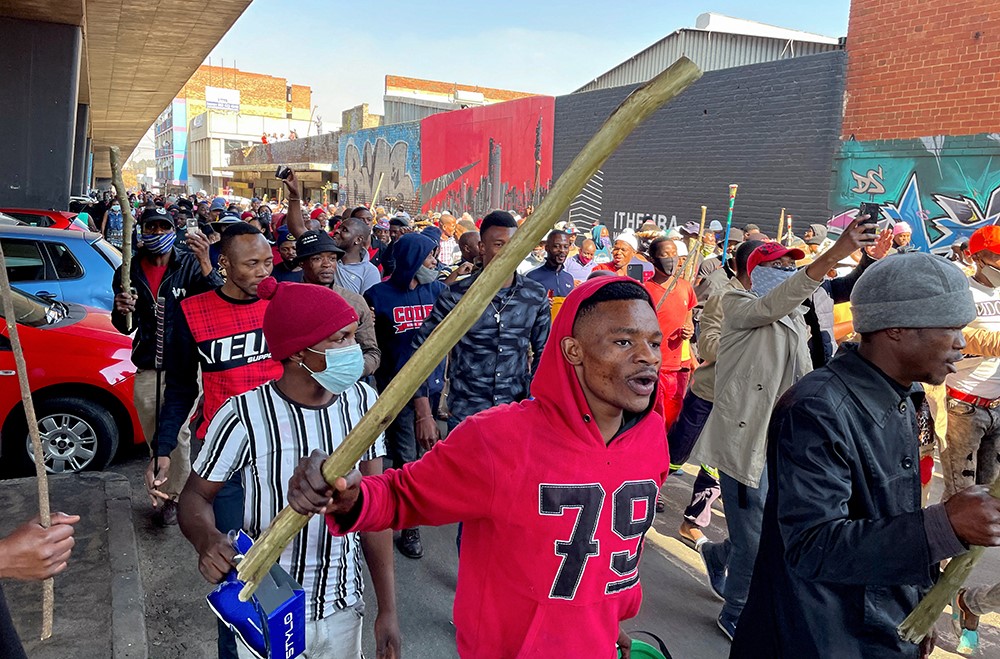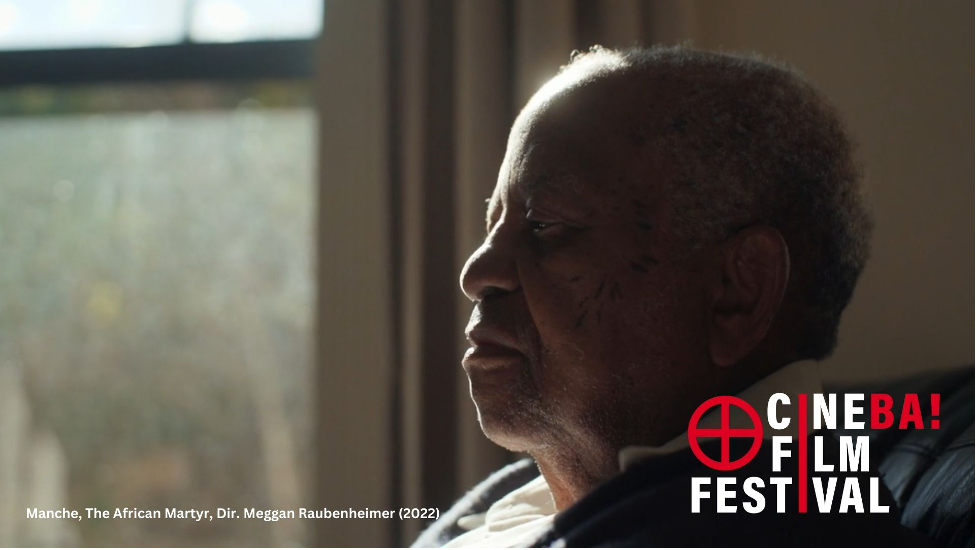“No other place-names depend upon such violence. No other nouns owe their integrity to this semiotics of death. Meditations on African performance and subjectivity are always already spoken by this grammar and haunted by these ghosts. For whatever “Africa” means when spoken by Africans, whatever it means in the moment of performance, that cannot change Africa’s paradigmatic relation to other place-names and the people of those places. Performance cannot reconcile this gap between the place of slaves and the places of all others.”
-Frank B. Wilderson III: Grammar and Ghosts: The Performative Limits of African Freedom
Protests are loud, rhapsodic, rapturous, what Martinique~born literary cultural critic Édouard Glissant carefully calls “din”. The shuffling + tapping of feet, clapping of hands, pounding of fists, screams, and songs and lots of songs. Dissent (like the dystopia that makes it possible) animates and shapes the songs. The songs give content to the dissent and are always indicative of political alternatives, a post-dystopia social life. In Sudan, the songs of and in the protests, which is to say the music of and in the protests, were carried into the protests anti?government demonstrations. Sudan in song.
Khartoum, the Capital city of Sudan, bore witness to the historic mass(ive) sit-in outside the army's headquarters where (mostly) young people engaged in what has come to be known as “bread protest{s}” demanded an immediate end to former president Omar al-Bashir's reign which stretched for three decades, an end the people believe(d) will bring about freedom from military rule (since their independence in 1956), peace. & prosperity. The first wave of protests began in December of 2018, and according to Andrew Edward Tchie:
“The current uprising was triggered by a government decision to lift subsidies on essential commodities and to drastically increase bread prices. In a matter of weeks, the protest in Atbara would reach the capital Khartoum 349 kilometres away.”
.gained momentum and intensified, spread like wildfire throughout 35 cities, eventually forcing the president to step down following his house arrest by the army. Dethroned.
Songs.
1
Prof Mohamed A. Satti highlighted the link between politics and music in Sudan as far back as 1924:
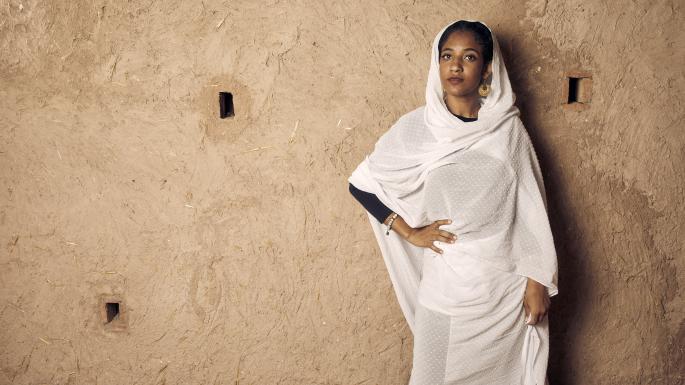
“One of the earliest examples of how powerful lyrics drove political change was a poem entitled “Umm Dhafayir” – The Lady with Pleated Hair – by Obeid Abdul Nur, an educator and a poet. Written in 1924, the poem urged Sudanese to rise up and fight against British occupation. The eloquently-articulated words highlighted the importance of the nation and urged the youth to fight for their homeland.”
The radicalisation of music songs, argues Prof Satti, was symbolic of the fashioning of lyrics with political content. “October Al Akhdar” (Green October), written and performed by Muslim Nubian Sudanese singer and songwriter Mohammed Wardi as an anthem during the revolution of 1964 that overthrew yet another military government. 1985, Wardi was to inspire the Sudanese to remove another government that had overstayed.
The doccie
The Power of Music in Sudan, is a Music in Africa documentary which was filmed a few months before the December 2018 insurgency to document the lives of musicians in Sudan as they navigate life and\as trauma(tic) in the country. According to Music in Africa, the documentary:
“is part of the concluded Music In Africa Connects (MIAConnects) project – an initiative developed by the Music In Africa Foundation to support musicians in countries affected by conflict. The film traces the implementation of this initiative, which brought together musicians from different backgrounds to workshop ideas, co-create, record new songs and stage performances in a context where artists, particularly women, face myriad challenges like censorship and suppression.”
The film, shot by Yalla! Khartoum, “an urban arts project incubated by Goethe-Institut Sudan explores the ways in which these musicians”, explores the lives of these musicians and what they perceived to be the social and political role of music. The artist, according to the facilitators, must express themselves, their (aspirations for) freedom, through their music. The artist musician must find, create, a language to articulate the horrors that haunt their lives as young people in Sudan, and more particularly women.
“The situation of females in Sudan is quite difficult because we're supposed to be safe,” says one womxn participant vocalist. The regime’s Islamisation and Arabisation policies, which orientated society to perceive the womxn's voices as something to be hidden, argues Andrew Edward Tchie, have been extremely oppressive to womxn and “explains why young Sudanese women are at the heart of the uprising”.
Africa, freedom. & limitations
The MIAConnects initiative recognises Sudan as a crisis ridden country, rife with conflicts and young people caught in the crossfire. This is not untrue, but borders carelessly on euphemism. Sudan, like the rest of the continent, is a shithole. Shit hits the fan, altyd. As Wilderson III suggests in the epigraph, conflict-violence is synonymous with Africa at both a conceptual and material level. In Africa, cultural aesthetic production must wrestle with this contradiction: negotiating between how we see ourselves and how the world sees us.

